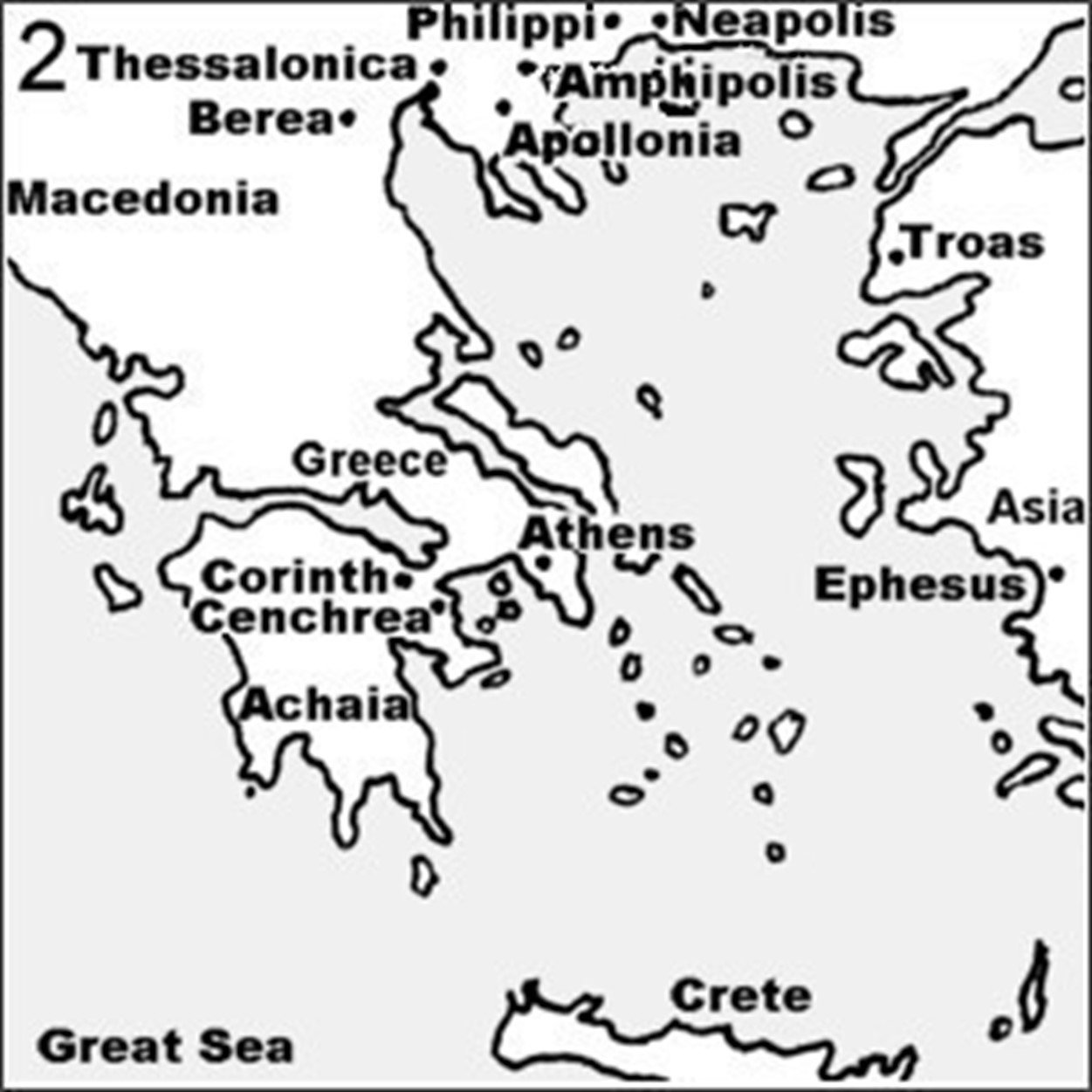Acts: The Church's Beginning
Week 22
Acts 17
Paul’s experiences and work in Thessalonica.
1 Have a desire to share who Jesus is
Verses 1-3
"When Paul and Silas had travelled through Amphipolis and Apollonia, they came to Thessalonica. There was a Jewish synagogue in Thessalonica. So Paul, according to his custom, went in to those assembled and reasoned with them from the Scriptures. He did this on three Sabbath days. Paul explained and proved that the Christ had to suffer and rise again from the dead. Paul said, “This Jesus, whom I proclaim to you, is the Christ.” " (Acts 17:1-3).
Verses 4-7
"Some of the Jews in the synagogue at Thessalonica were persuaded by Paul and joined him and Silas. So did a great many of the devout Greeks and quite a few of the important women. But other Jews grew jealous. They took along some wicked men from the marketplace, got a mob together, and set the city in an uproar. Storming the house of Jason, they intended to bring Paul and Silas out to face the people. When they didn't find them, they dragged Jason and certain brothers before the rulers of the city and shouted, “Those men who have turned the world upside down have come here also. Jason has welcomed them. These men and their followers all act contrary to the decrees of Caesar. They say that there is another king, Jesus!” " (Acts 17:4-7).

Paul’s experiences and work in Berea.
2 Know WHEN and WHERE to share who Jesus is.
Verses 8-10
"The populace and the rulers of the city were troubled when they heard these things. They released Jason and the others, but only on bail. The brethren immediately sent Paul and Silas away by night to Berea. When Paul and Silas arrived, they went into the Jewish synagogue." (Acts 17:8-10).
Verses 11-12
"Now these at Berea were more noble than those in Thessalonica, in that they received the word with all readiness of the mind. They examined the Scriptures daily to see whether the things that Paul and Silas preached were so. Consequently, many of them believed. So did many of the prominent Greek women, and quite a few men." (Acts 17:11-12).
3 Expect resistance to the message.
Verses 13-15
"The Jews of Thessalonica found out that the word of God was proclaimed by Paul at Berea also. So they came there stirring up the crowds as they'd done in Thessalonica. Then the brethren at Berea immediately sent Paul out of the city and all the way to the sea. Silas and Timothy remained in Berea. Paul’s escorts brought him as far as Athens. Paul gave the escorts an order for Silas and Timothy to come to him very quickly. So the escorts departed." (Acts 17:13-15).
Paul’s experiences in Athens Greece.
4 Be able to articulate the message.
Verses 16-18
"Paul waited at Athens for Silas and Timothy. Paul’s spirit was provoked within him as he saw the city full of idols. So he reasoned not only in the synagogue with the Jews and the devout persons, but also in the marketplace every day with anyone who happened to be there. Some of the Epicurean and Stoic philosophers were among those conversing with him. Some said, “What is this babbler trying to say?” Others said, “He seems to be advocating foreign deities.” They said this because Paul preached Jesus and the resurrection." (Acts 17:16-18).
5 Understand your audience.
Verses 19-21
"The philosophers took hold of Paul, and brought him to the Areopagus. They said, “May we know what this new teaching is that you proclaim? You bring strange things to our ears. So we want to know what these things mean.” (Now all the Athenians and the strangers visiting there spent their time in nothing else but to tell or hear some new thing.)" (Acts 17:19-21).
Verses 22-23
"Paul stood in the midst of the Areopagus and said, “You men of Athens, I perceive that you are very religious in all things. For as I walked around the city and observed the objects of your worship, I found among them an altar with this inscription: 'TO AN UNKNOWN GOD'. What therefore you worship in ignorance, this I announce to you." (Acts 17:22-23).
Verses 24-25
"The God who made the world and all things in it, he is Lord of Heaven and earth. So he doesn't dwell in temples made with hands, neither is he served by men’s hands as though he needed anything; since he himself gives to everyone life and breath and everything." (Acts 17:24-25).
Verses 26-28
"God made from one blood every nation of men to dwell on all the surface of the earth. He determined their appointed times and the boundaries of their dwelling places. He appointed that they should seek the Lord, if perhaps they might reach out for him and find him. He is not far from any one of us, for in him we live, and move, and have our being. As some of your own poets have said, 'For we are also his offspring.' " (Acts 17:26-28).
Verses 29-31
"Since we are the offspring of God, we ought not to think that the Divine Nature is like gold or silver or stone formed into some image by human art and design. Therefore whilst God overlooked the times of ignorance, he now commands that all people everywhere should repent. The reason is that he has appointed a day in which he will judge the world in righteousness by the man whom he has ordained. He has given assurance of this to everyone, by raising that man from the dead.” " (Acts 17:29-31).
6 Expect one of three responses to the Gospel.
Verses 32-34
"When the philosophers heard Paul speak of the resurrection from the dead, some mocked. Others said, “We want to hear you again concerning this.” So then Paul went out from among them. However certain men joined with him, and believed. These included Dionysius the Areopagite and a woman named Damaris, among others with them." (Acts 17:32-34).


